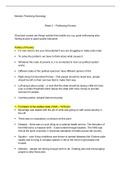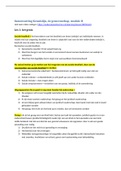Lecture notes
Politicising Poverty - Practicing Sociology (week 2)
- Institution
- University Of Roehampton (RU)
Notes on week 2 of the module Practicing Sociology. This is a Sociology degree module. Topics covered in these notes: Politics of Poverty, Formation of the welfare state (1945 – 1970-ish), Margaret Thatcher, 1979 – 1990, New Labour, 1997 – 2020, Austerity Britain, 2010 – 2015, 2015 – Pres...
[Show more]




